Email marketing templates for small businesses can be a game-changer helping you save time, stay consistent, and convert more leads into loyal customers. But with so many tools offering pre-designed templates, how do you choose the right one for your business? In this guide, we’ll compare the top platforms, highlight the best features to look for, and share tips to help you get the most out of your email campaigns.
How We Compared the Best Email Marketing Platforms
When selecting the top tools offering email marketing templates for small businesses, we focused on what truly matters for entrepreneurs, solopreneurs, and growing brands with limited time and resources.
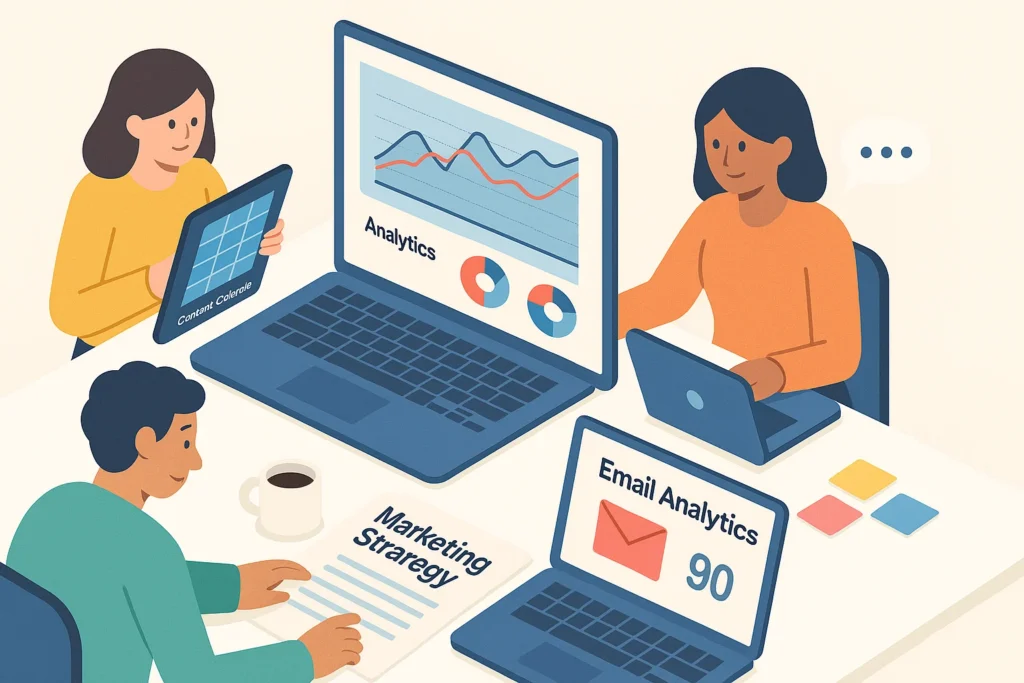
Small businesses don’t need overly complex platforms they need professional-looking templates, easy-to-use tools, and affordable pricing. With that in mind, we used the following criteria to compare and rank each platform fairly
11 Key Categories to Compare Email Marketing Templates for Small Businesses
Choosing the right platform to create and send emails can be overwhelming—especially when you’re running a small business. That’s why we narrowed down the most important features to consider when selecting the best email marketing templates for small businesses. These 11 categories will help you compare platforms side by side and make a confident decision that fits your goals, time, and budget.
1. Template Variety & Design Quality
We looked at how many templates each platform offers and how well-designed they are. A good email template should look modern, match different business types, and be easily branded.
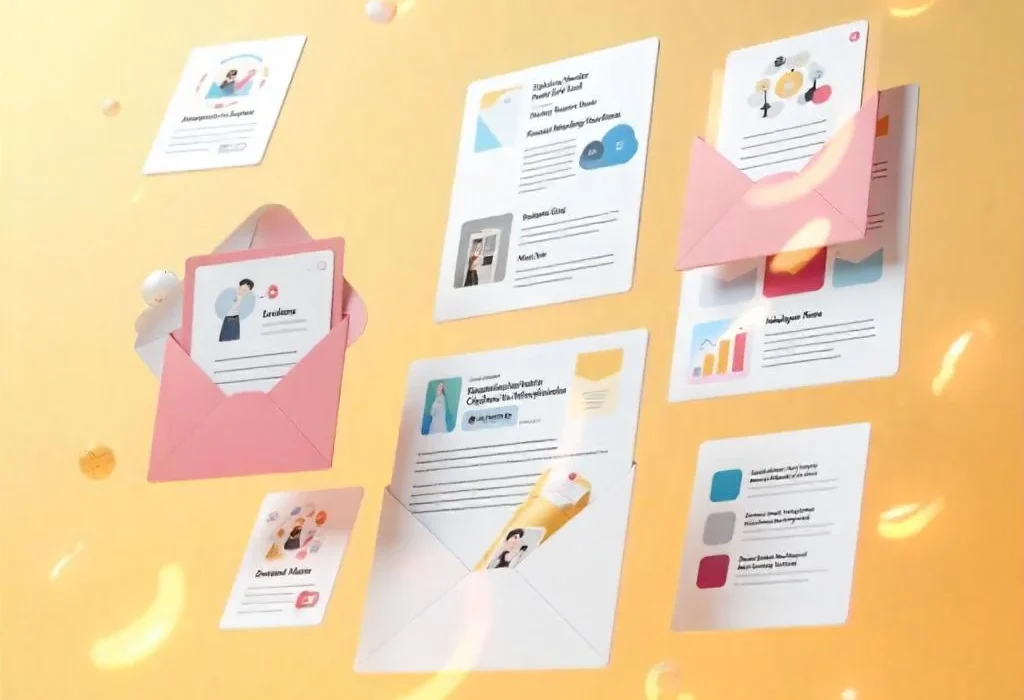
2. Ease of Customization
Drag-and-drop builders are essential for non-designers. We tested how easy it is to modify fonts, colors, layout, and images without writing a single line of code.

3. Mobile Responsiveness
Over 60% of emails are opened on mobile devices. We ensured that each email template is mobile-responsive and still looks great on smartphones and tablets.
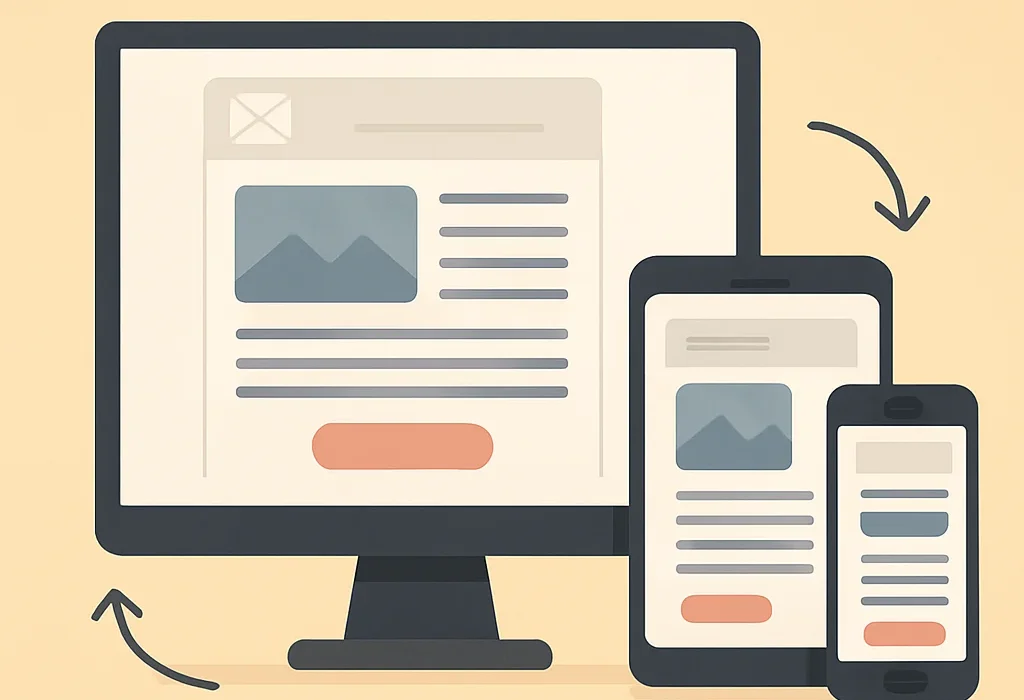
4. Industry-Specific Templates
Not all businesses are the same. We prioritized platforms offering templates tailored to different industries like eCommerce, local services, coaches, real estate, and more.
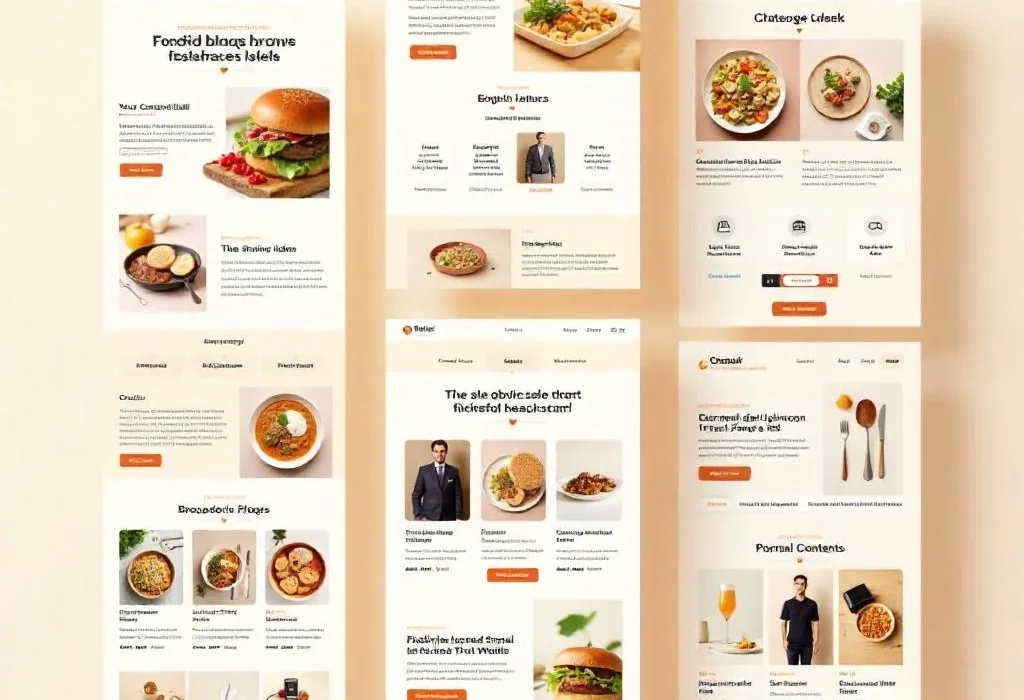
5. Automation Support for Templates
Small businesses thrive on automation. We analyzed whether email templates could be easily used in automated campaigns like welcome sequences, cart abandonment, and re-engagement flows.

6. A/B Testing Capabilities
Testing different versions of a subject line or template layout can dramatically improve results. We checked which platforms support A/B testing and how easy it is to set up.
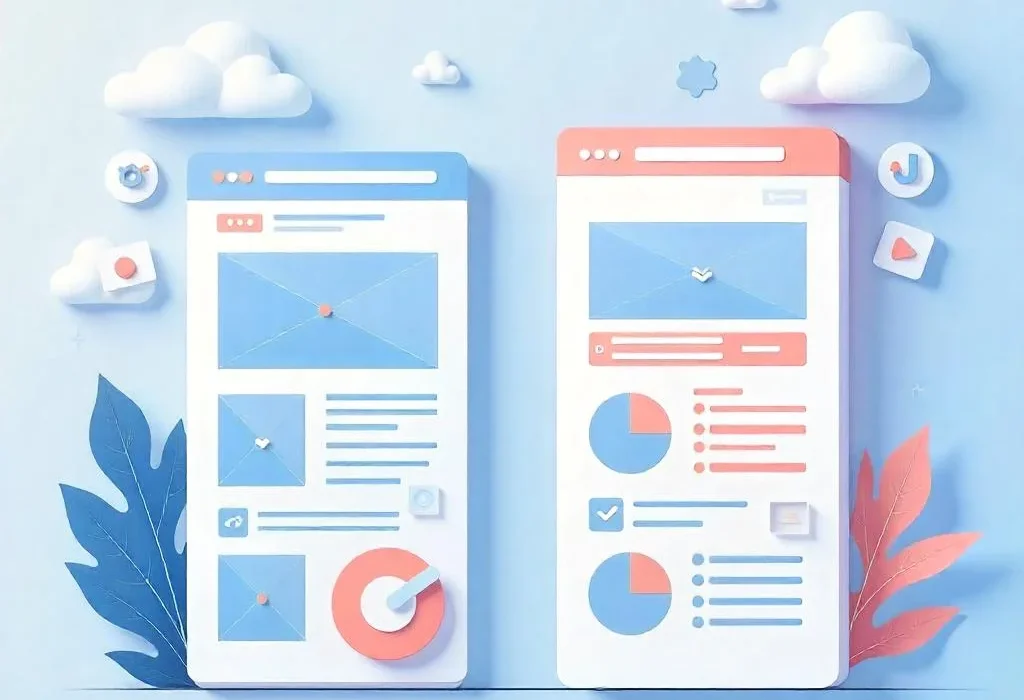
7. Integration with CRM & eCommerce
Whether you’re running a Shopify store or using a CRM like HubSpot, integration matters. We evaluated how well each tool connects with third-party services.
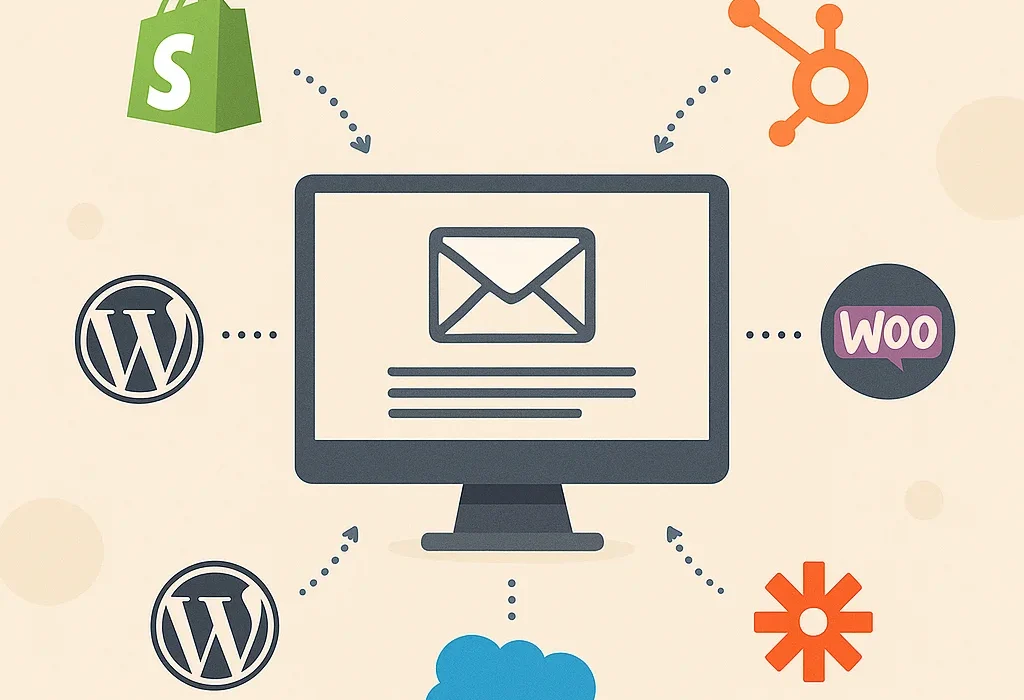
8. Affordability for Small Businesses
We considered the price per month and what features are available on the free or entry-level plans. Our focus was on platforms offering value without requiring enterprise-level budgets.
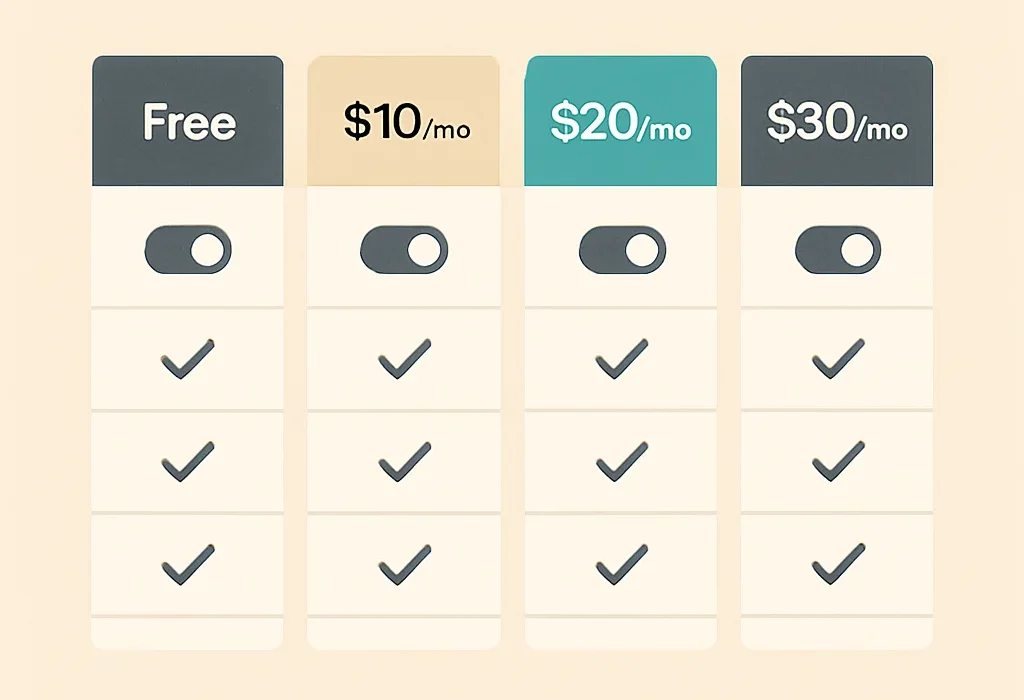
9. Deliverability & Performance Analytics
Great templates mean nothing if your emails go to spam. We looked into deliverability rates and whether the platform provides analytics like open rates, click-throughs, and heatmaps.

10. Template Personalization Features
We prioritized platforms that allow small businesses to personalize emails using subscriber names, purchase history, or behavioral triggers to increase engagement.
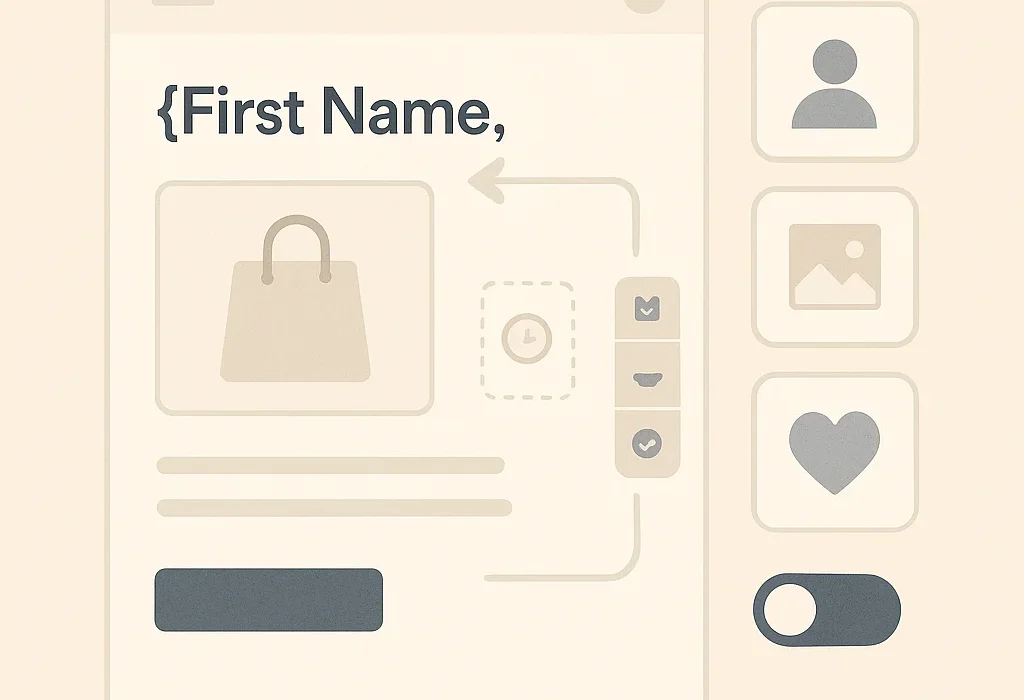
11. Compliance & Accessibility
We ensured the templates follow GDPR and CAN-SPAM laws, include unsubscribe links, and meet accessibility standards so that emails are readable by screen readers and assistive technologies.

Why These Categories Matter for Small Businesses
Each of these categories directly impacts how effectively you can use email marketing templates for small businesses to reach your audience, nurture leads, and grow sales. Whether you’re a solo entrepreneur or a growing team, these criteria will help you choose a platform that fits your needs without wasting time or money.
Top Platforms Offering Email Templates for Small Businesses
With so many tools out there, it can be hard to know which platform offers the right mix of affordability, design, and ease of use. Based on the key criteria we outlined earlier, here are the top platforms that provide high-quality email marketing templates for small businesses—ranked by value, simplicity, and effectiveness.
1. MailerLite – Best for Beginners on a Budget
Why it stands out
MailerLite offers a clean and easy-to-use interface with a generous free plan. Its template library includes modern, responsive designs that are perfect for newsletters, promos, and announcements.
Key Highlights
- 60+ ready-made templates
- Drag-and-drop editor
- Mobile-optimized designs
- Works well with Shopify, WordPress, WooCommerce
- Free plan for up to 1,000 subscribers
2. Mailchimp – Best All-in-One Marketing Platform
Why it stands out
Mailchimp is one of the most well-known email tools, and for good reason. It offers a vast selection of email marketing templates for small businesses, from holiday campaigns to product launches.
Key Highlight
- 100+ professional templates
- Industry-specific designs
- AI content suggestions
- Automation and segmentation tools
- Integrates with 300+ apps and eCommerce platforms
3. Brevo (formerly Sendinblue) – Best for Automation + Templates
Why it stands out
Brevo offers both a strong template builder and advanced automation, making it ideal for small businesses looking to scale their email marketing.
Key Highlights
- 40+ modern, responsive templates
- Easy drag-and-drop editor
- Advanced workflows (cart abandonment, welcome series)
- SMS + email automation
- Free plan includes up to 300 emails/day
4. Moosend – Best for Simple Campaigns and Quick Launches
Why it stands out
Moosend is a budget-friendly email platform with stylish templates that work well for small businesses needing quick, visually appealing campaigns.
Key Highlights
- 70+ customizable templates
- Real-time reporting & analytics
- GDPR-compliant features built-in
- Strong personalization options
- Affordable pricing starting under $10/month
5. Constant Contact – Best for Local Businesses & Non-Tech Users
Why it stands out
Constant Contact caters to small local businesses, nonprofits, and solopreneurs. It offers easy-to-edit email marketing templates for small businesses with step-by-step guidance.
Key Highlights
- 200+ templates with prewritten text
- Industry and seasonal templates
- Event and survey integrations
- Phone support available
- Great for workshops, retail, and services
6. ConvertKit – Best for Content Creators & Coaches
Why it stands out
ConvertKit is designed for creators—coaches, writers, and solopreneurs. It doesn’t have a vast template gallery, but it offers clean layouts optimized for personal engagement and automation.
Key Highlights
- Minimalistic email templates
- Powerful tagging and segmentation
- Visual automation builder
- Landing pages and forms included
- Free plan up to 1,000 subscribers
Top Platforms Offering Email Templates for Small Businesses
Now that we’ve looked at the top platforms offering email marketing templates for small businesses, the big question is: which one should you choose?
The answer depends on your budget, industry, technical skill, and marketing goals. To make your decision easier, here’s a side-by-side comparison of the top tools we reviewed highlighting the most important features for small business owners.
Comparison Table: Best Email Marketing Templates for Small Businesses
Key Features
| Platform | Best For | Template Quality | Customization | Automation |
|---|---|---|---|---|
| MailerLite | Beginners & budget users | ⭐⭐⭐⭐ | Easy | Basic |
| Mailchimp | All-in-one campaigns | ⭐⭐⭐⭐ | Moderate | Advanced |
| Brevo | Automation-focused users | ⭐⭐⭐⭐ | Easy | Advanced |
| Moosend | Fast, low-cost campaigns | ⭐⭐⭐⭐ | Easy | Advanced |
| Constant Contact | Local service businesses | ⭐⭐⭐⭐ | Easy | Basic |
| ConvertKit | Creators & solopreneurs | ⭐⭐⭐ | Moderate | Strong |
Usability & Pricing
| Platform | Free Plan | Ease of Use | Starting Price |
|---|---|---|---|
| MailerLite | ✅ Yes | ✅ Very Easy | $0 /mo |
| Mailchimp | ✅ Yes | ✅ Easy | $0 /mo |
| Brevo | ✅ Yes | ✅ Easy | $0 /mo |
| Moosend | ❌ No | ✅ Easy | $7 /mo |
| Constant Contact | ✅ Trial | ✅ Very Easy | $12 /mo |
| ConvertKit | ✅ Yes | ✅ Moderate | $0 /mo |
Final Thoughts
All of these platforms offer solid email marketing templates for small businesses, but the right one for you depends on your goals, technical skill level, and budget. Whether you’re sending weekly newsletters, launching products, or nurturing leads, the right template paired with automation can help you save time and grow faster.
Tips for Using Email Templates Effectively in Your Business
Choosing the right platform with great email marketing templates for small businesses is just the first step. To get the best results from your email campaigns, you need to use those templates wisely. Here are 5 practical tips to help you boost open rates, engagement, and conversions—without wasting time or ending up in spam.
1. Write Subject Lines That Get Opened
Your subject line is the first thing subscribers see and it’s often the deciding factor in whether they open your email or ignore it. Make it count.
- Keep it short (40–60 characters)
- Use action words or curiosity (e.g., “Ready to grow your sales?” or “A gift inside…”)
- Avoid clickbait or misleading phrases
- Add personalization, like the recipient’s first name
2. Send Emails at the Right Time
Timing plays a huge role in your open and click rates. While the “best time” can vary by industry, here are general guidelines
- Tuesday to Thursday are usually best for engagement
- 10 AM – 12 PM or 4 PM – 6 PM work well for most audiences
- Test your audience and review data to find your sweet spot
3. Personalize Your Emails
Personalized content increases engagement. Most email platforms allow you to dynamically insert customer names, locations, or even recommend products based on past activity.
- Use [First Name] in subject lines and greetings
- Send behavior-based emails (like abandoned cart reminders)
- Personalize offers or messages by segment (new vs. returning customers)
4.Don’t Overwhelm—Be Consistent
How often you send emails matters. Too many, and people unsubscribe. Too few, and they forget about you. A good rule of thumb:
- 1–2 emails per week for most small businesses
- Increase frequency during launches, holidays, or special offers
- Maintain a content calendar for consistency
5.Avoid Spam Folders at All Costs
Even the best email marketing templates for small businesses won’t help if your emails end up in spam. Here’s how to stay clear:
- Avoid all caps and excessive exclamation marks
- Don’t use spammy words like “Free!!!” or “Buy now!!!” in the subject
- Always include an unsubscribe link
- Use verified sending domains (like setting up SPF, DKIM)
Final Thoughts: Choosing the Right Email Templates for Your Business
Email marketing remains one of the most powerful and cost-effective ways for small businesses to connect with customers, drive sales, and build long-term relationships. But the secret to success isn’t just sending emails—it’s sending the right emails with the right templates.
With so many tools available, choosing the right platform can feel overwhelming. That’s why we broke down the most important features—from template design and mobile responsiveness to automation and affordability—so you can confidently choose the tool that best fits your business.
Whether you’re a solopreneur launching your first campaign or a growing team ready to automate your email strategy, using professional email marketing templates for small businesses will save you time, improve engagement, and ultimately grow your bottom line.

PasiveMarketer delivers hands-on SaaS and software reviews along with affiliate marketing insights to help entrepreneurs choose the right tools and build profitable online businesses with confidence.


